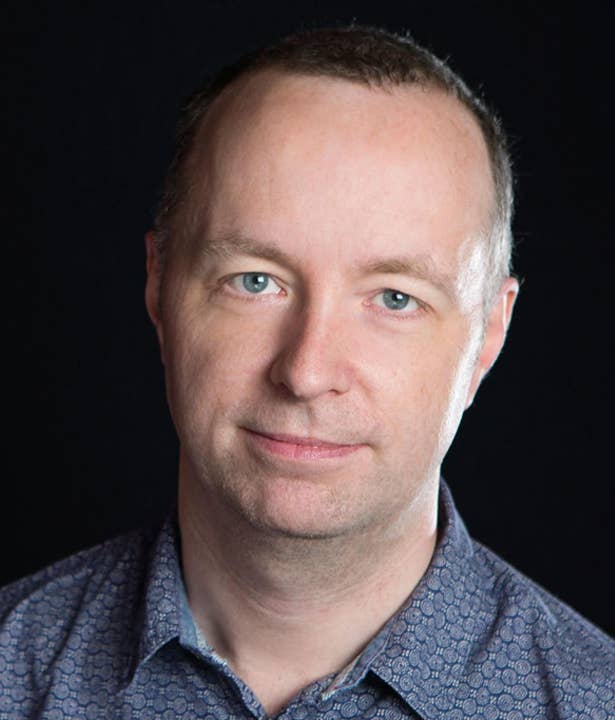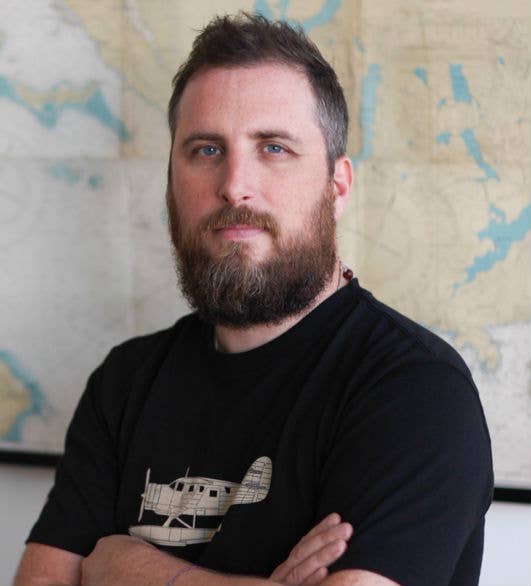Developers weigh in on "cold reality" check for indies
Responses to John Warner's sobering article came from a range of indie devs, both with and without AAA experience
Earlier this week, we published a guest column from Over The Moon studio director John Warner, entitled "It's time we stopped encouraging indies." In it, Warner pushed back against traditional encouragement of young creators toward indie development, referring to an "enabling" attitude that ignored the "cold realities" of the business.
The piece sparked a number of replies from existing indie developers, some of whom came from AAA and others who did not, sharing their perspectives across social media and other platforms on why Warner's approach was either a much-needed wake-up call or an inaccurate, limited portrayal of the industry.
The range of opinions on Warner's piece is broad, and we feel many of the stories are helpful in gaining a wider view of the current struggles of indie development; from the perspective of those with AAA experience who begin indie projects later in life, and those who find success carving their own path without that experience.
"I am your competition as an indie dev. You may not like to think like that... but the fact is, I exist and I'm making games 60 hours a week and I love it"
Cliff Harris
Cliff Harris, founder of Positech Games, is one developer who largely agreed with Warner's assessment, weighing in through a blog post. Harris laid out several industry factors contributing to the struggle to be noticed in a crowded marketplace and to make money after investing massive amounts of time and money.
Though Harris admitted he doesn't have a solution, he identified three "forces" that contribute to this struggle: the fact that indie developers are willing to take unnecessary risks and thus drive down wages, lowered barriers to entry, and skill disparity. All of these, he said, can often be avoided by someone with AAA experience who can recognize them.
"A really AWESOME bricklayer may be able to lay bricks at double the rate of a bricklayer who learned the trade last week," he wrote. "Maybe even three times as fast. That's awesome. But a really AWESOME programmer is likely 40 to 50 or even 100x as productive as a newcomer to programming. It sounds like bullshit but its true, and the sad thing is you really need to HAVE that much experience before you truly appreciate this reality. The same is likely true for artists.

"In many ways I am the *worst case* scenario as a competing indie developer. I have 37 years coding experience, and 20 years indie dev experience. I learned to type before home computers even existed, and used to get a book and type out the text from the book on a manual typewriter *for fun* as a child. I'm married and have no kids, so I'm not constantly socializing or dating, and have zero distractions. I work from home in the countryside in a 100 per cent distraction-free environment. I can afford the most comfortable chair imaginable, the fastest PC imaginable, I am healthy, I love my job, I have no boss, and no financial worries. Add to this...I have no major hobbies, I hate most TV, the majority of books I read for fun are about programming or business or marketing.
"...I am your competition as an indie dev. You may not like to think like that, and I certainly like to be helpful to other indies and encourage people, but the fact is, I exist and I'm making games 60 hours a week and I love it. I am not the only one. You are also trying out-code Chris Delay from Introversion, Jonathan Blow, Jamie Cheng, Ryan Clark, and a bunch of other indies who have WAY more experience and WAY more technical ability than you (probably), simply because of age and time."
"The broad spectrum of skills you *must* master to be a successful independent dev is staggering"
Raphael van Lierop
Hinterland founder Raphael van Lierop felt the article provided much-needed perspective, though he offered a more moderate takeaway. His studio is currently working on The Long Dark, and it has assembled a team of veterans to do so - 90 per cent of the developers at Hinterland come from AAA studios, he said, and that has given the team the wisdom that comes with experience without diminishing their creativity.
"The broad spectrum of skills you *must* master to be a successful independent dev is staggering, compared to the specialization that is required to work on very complex, large-scale software projects (which is what AAA games are)," he said. "Not better, just broader. When small, generalization is necessary. You sacrifice being great at one or two things to be very good/decent at many, many things. That's what a small team/project/studio needs. Larger projects need specialists, discipline experts, to push things forward, break new ground.
"Not better or worse, just different. There's lots to learn on both 'sides' (if they are sides, and I'm not sure they are -- I don't think they should be), making anything is difficult, respect to anyone who ships anything at all, really."

Emma 'Eniko' Maassen of Kitsune Games also tweeted a lengthy reply, acknowledging that indie developers needed the dose of realism, but felt that the article didn't give a fair shake to generalists.
"The first assumption here is that being a specialist in AAA will give you the skills needed to run a successful business," she writes. "It won't. You see famous AAA designers transition to indie all the time and fail because they can't apply the same techniques.
"...The thing is, what you really need is the skills to make the best game you can as quickly as possible and as cheaply as possible. That's not a skill you'll pick up in AAA. Even more than that, to succeed as an indie you need to know how to run a business, which AAA doesn't teach.
"...Frankly I think this is where most indies go wrong; they don't know how to run a business. They don't know how to do market research or projections. They don't plan for failure and to stack multiple smaller projects to spread out risk to the business, and more... Anyway, you wanna succeed in indie you need to not only be GOOD, you need to be a generalist who can flex into different roles when needed, and you need to know how to run a business, when to spend money and when to not. AAA experience will not teach you any of that."
"What you really need is to make the best game you can as quickly and cheaply as possible. That's not a skill you'll pick up in AAA"
Emma 'Eniko' Maassen
Chris Totten, who runs Pie for Breakfast Studios, pointed out another problem: the lack of industry jobs to provide that experience in the first place.
"The industry is one where a few very big studios hold the cards (jobs with benefits) and have the 'problem' of too many choices of who to hire," he said. "This is GREAT for studios as they have lots of talent to choose from, but is utterly toxic for applicants.
"The fact of the matter is, most big studios nowadays won't look at you unless you've shipped something, but by 'shipped something' a lot of these studios also mean 'on Steam or the App Store.' This is an important distinction, as students or new developers who understand this can find collaborators (or make a properly-scoped game on their own) and release something. This shows that 1) you are a self-motivated person who wants this, and 2) you have experience shipping."
Independent developer Zach Gage also offered a dissenting opinion. In a lengthy Twitter thread, Gage pointed out that the original article pre-supposes that success is reaching a particular, laid-out goal. Instead, Gage noted that many developers, as artists, don't have a singular goal to work toward. And that, he said, is fine.
"Almost everyone I know in the arts, even lots of successful amazing people, have side-jobs," he said. "That's what it's like being an artist. That is normal. Try to recall the last time someone you know quit their day-job to strike it rich as a painter or a writer or a musician. The way to operate in the arts is to take small risks by doing highly risky small things that make you happy and give you experience/resumé items even when they fail catastrophically. Don't build your livelihood or taste or happiness around expecting commercial success.
"...This is what Warner misses in that article. He thinks mortgaging your house to make a puzzle platformer is stupid and advises you to learn a trade skill and enter the industry and put in your dues. These are both bad. They're top-down, and to be an artist you need to go bottom-up. "Figure out how to make work that makes you happy NOW. Don't join a company, don't mortgage your house, don't pay a team, or write a design spec. Don't spend three years or even one year. Make things that you think are great and release them to the world and iterate, iterate, iterate."
